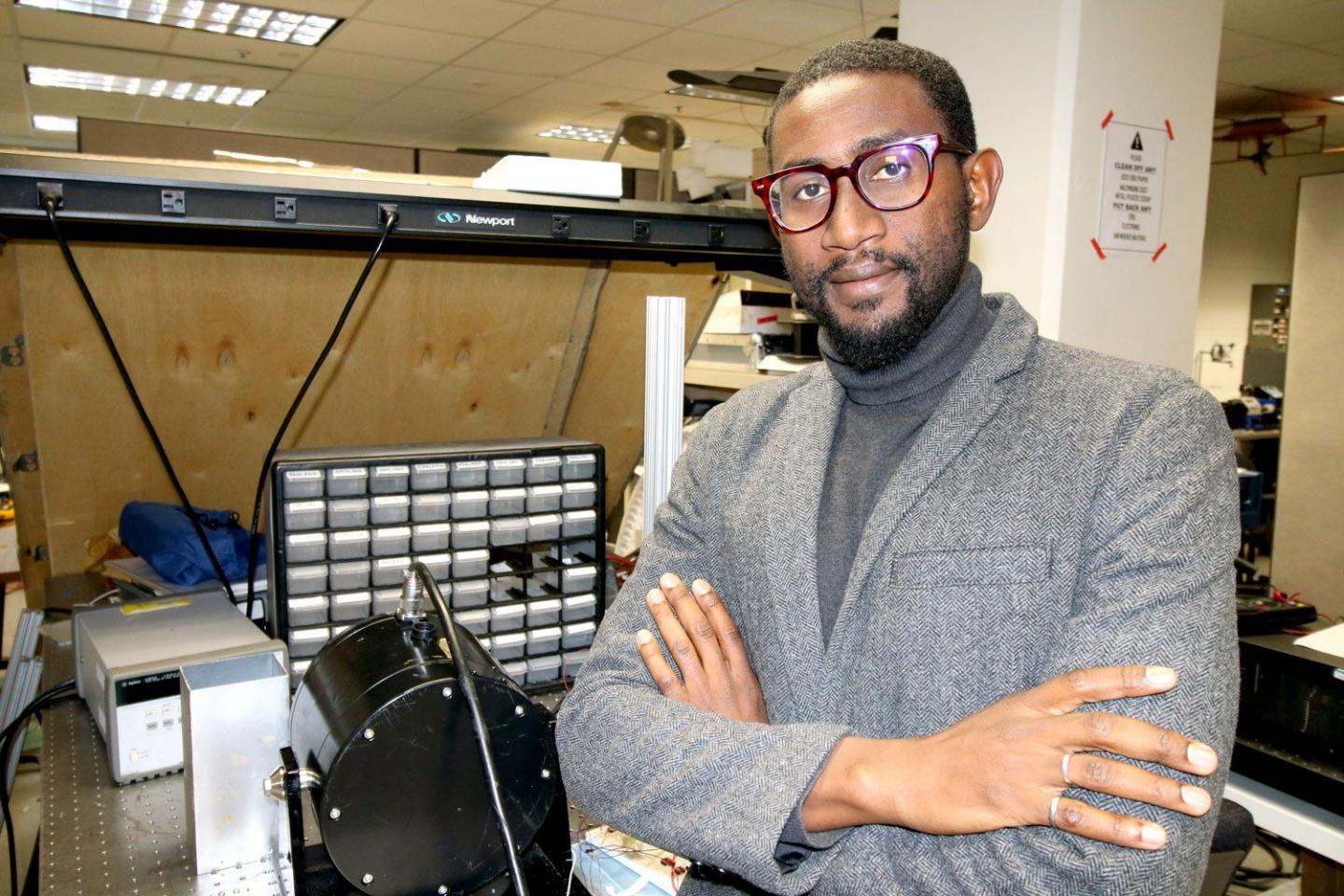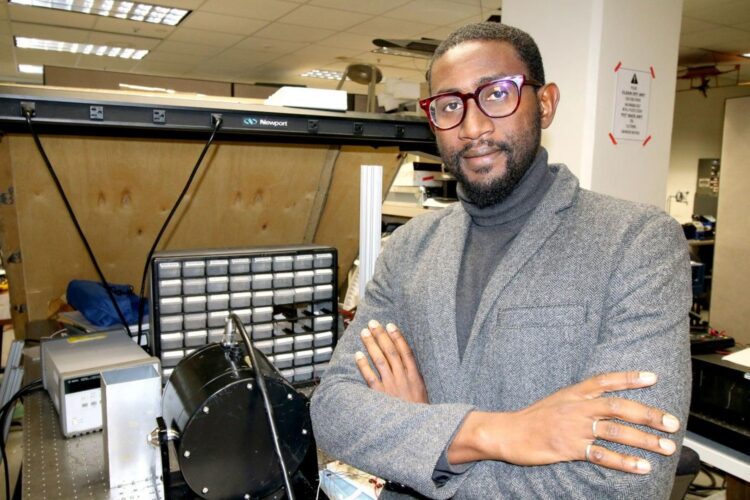
Credit: Virginia Tech
Oumar Barry, an assistant professor of mechanical engineering in the College of Engineering, is using a National Science Foundation Faculty Early Career Development (CAREER) award to support fundamental research for a self-powered autonomous robot to prevent electric power line defects.
“The U.S. power grid is more than 50 years old and there’s more than 150,000 miles of it ?– a lot of it in fairly remote areas,” said Barry. “The overhead power lines are exposed to harsh environments and wind-induced vibrations that limit their lifespan.”
Barry’s project proposes a multifunctional self-powered autonomous robot (SPAR) for intelligent vibration control and monitoring of power lines. But before a robot can be built, there are forces that need to be fully understood.
“We need a fundamental understanding of nonlinear dynamic interactions between wind forces, vibrating cables, and a mobile robot, and this hasn’t been explored yet,” Barry said. “The research goal is to create the tools that will enable construction of a SPAR.”
Normally, power lines are fitted with passive vibration absorbers. These are often ineffective because of their narrow frequency bandwidth, and they contribute to fatigue damage in cable strands, which can eventually result in line failure.
“Inspections of lines are usually done by people on foot patrols or via helicopter-assisted inspection,” Barry said. “Both techniques are expensive and dangerous for maintenance personnel. Current inspection robots are starting to be seen but they are bulky, heavy, have a short run time, are energy inefficient, and expensive.”
Barry believes that the research necessary to build SPAR will provide fundamental breakthroughs at the interface of energy harvesting, fluid-structure interactions, and vibration control. The project will be broken into four tasks:
- Construction of a multiphysics model to study wind-cable-robot interactions.
Creation of an effective and adaptive electromagnetic energy harvester to power SPAR.
Development of a wind-induced vibrations control framework to optimize vibration suppression.
Establishment of a testbed to experimentally investigate the performance of SPAR.
The term of the award is five years and will be funded at a total of $500,000.
###
Media Contact
Suzanne Irby
[email protected]
Original Source
https:/





